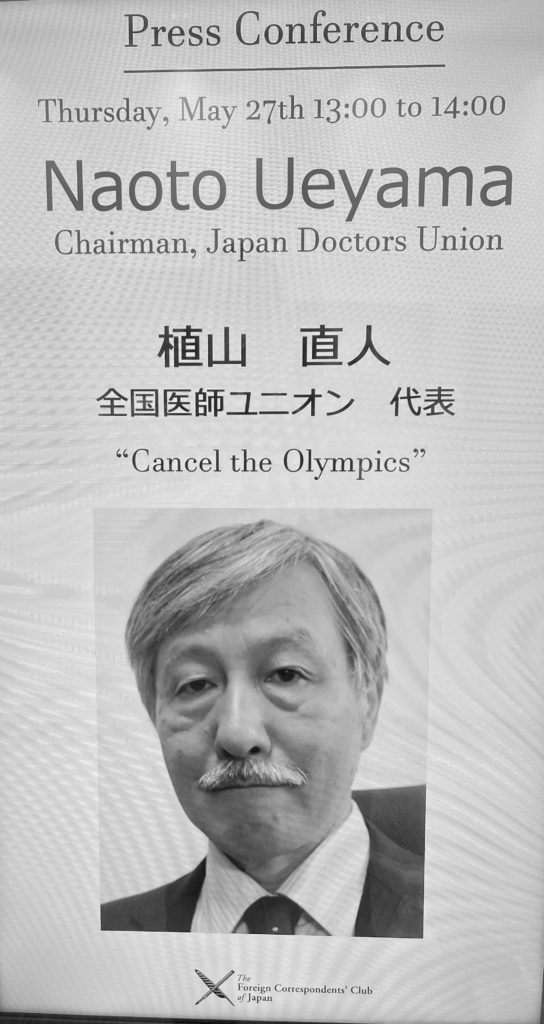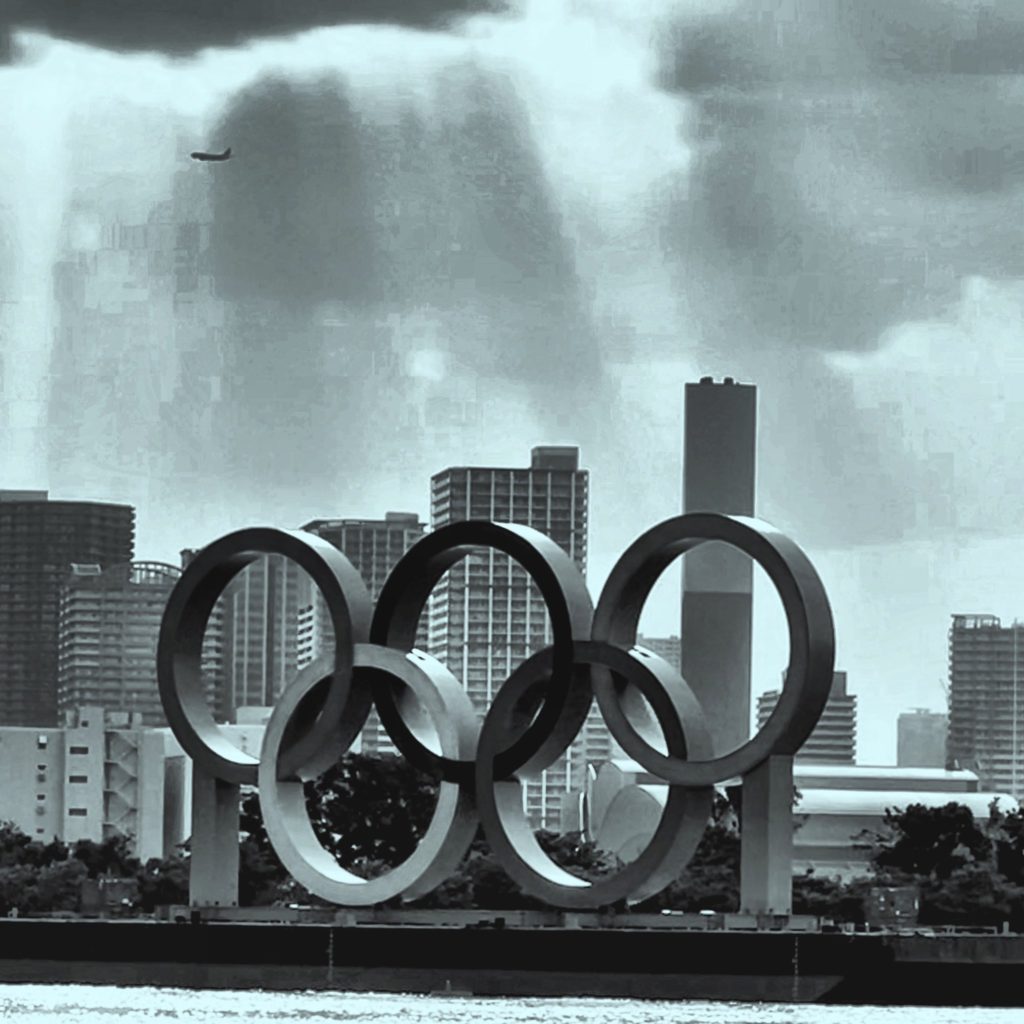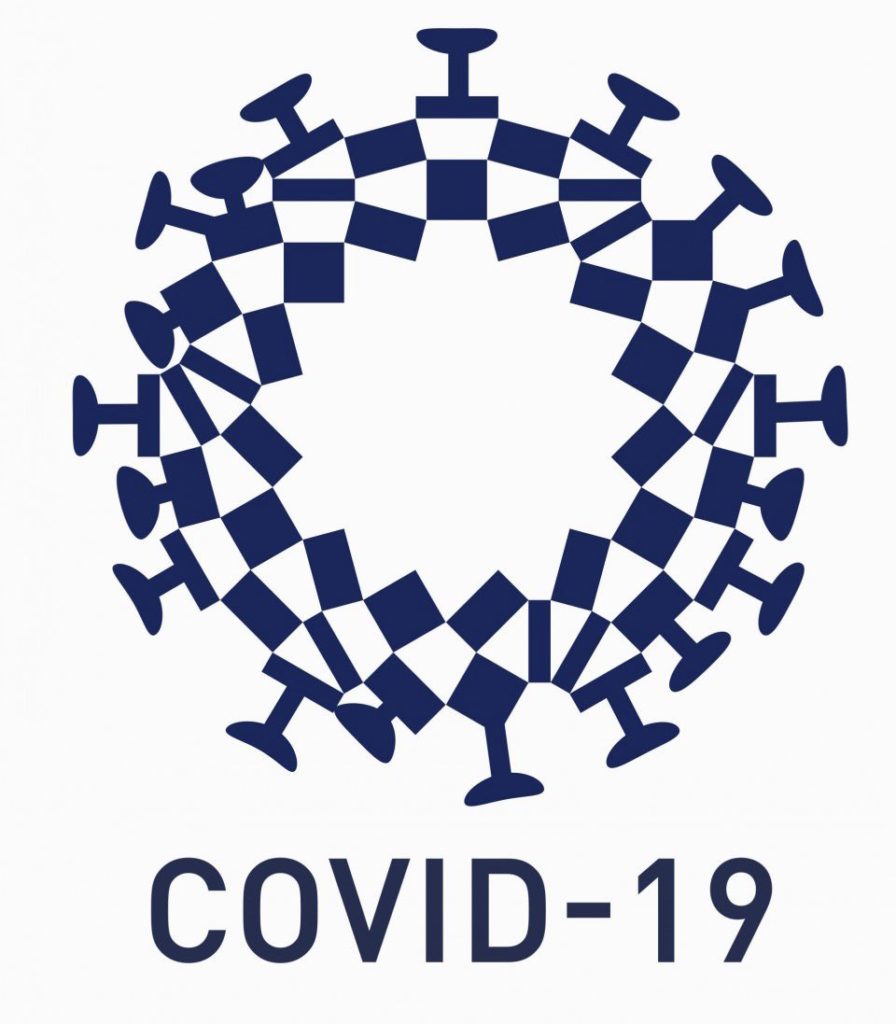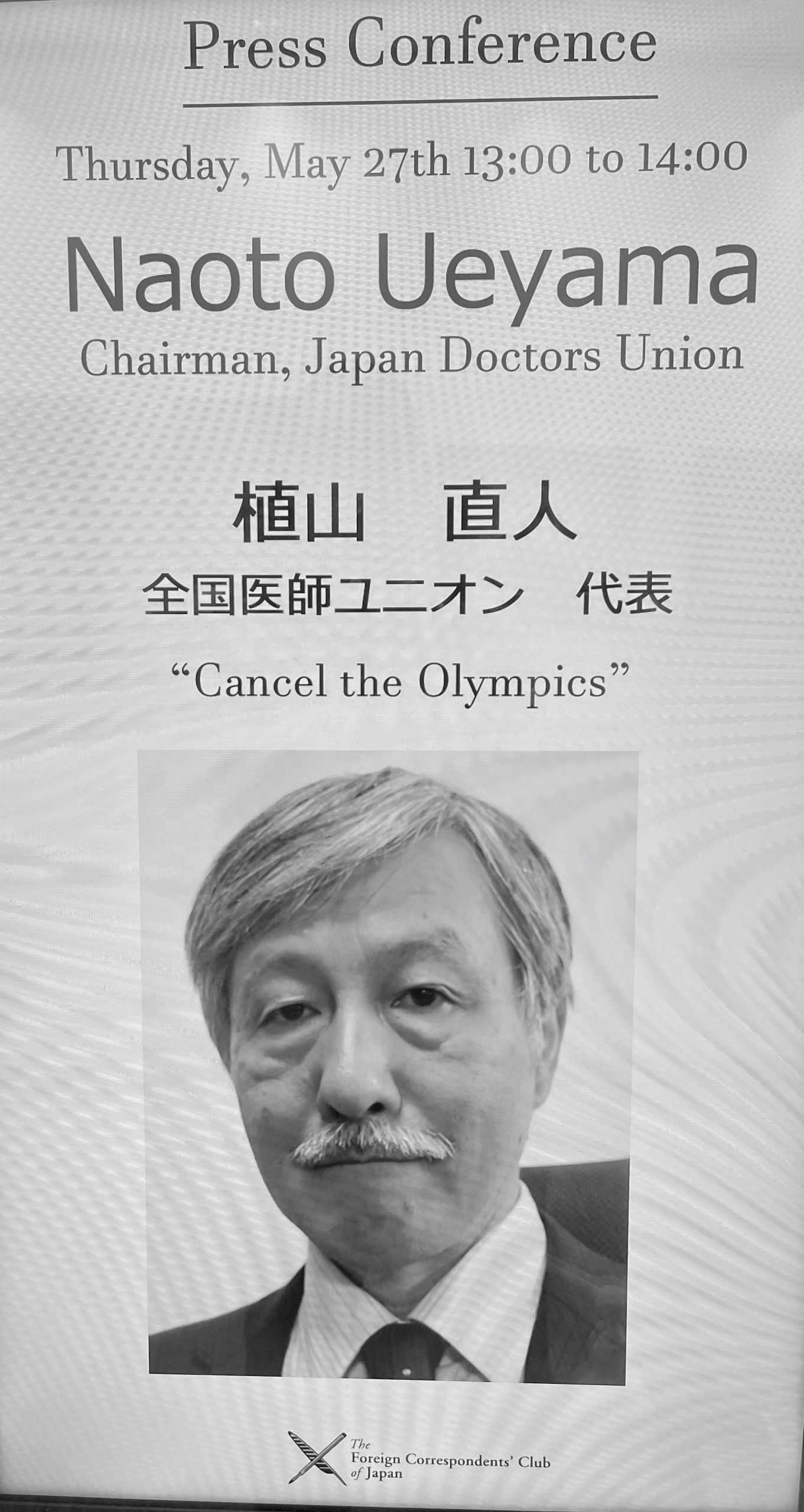by Chihiro Kai
Dr Naoto Ueyama, Chairman of Japan Doctors Union called upon the international community to unite and pressure the Japanese government to cancel the Tokyo Olympics scheduled to commence in July.

“I don’t think it can be said that the Olympics can be held in a safe way,” he said.
Ueyama said the international competition, which would gather over 80,000 people including athletes and staff from 200 countries, could distribute existing variants such as the U.K., Brazilian, South African and Indian strains across the globe, or behave as a petri dish for a new potentially more fatal mutation.
“And if that were to happen, the number of victims indeed would be on a number even unthinkable in a conventional war,” Ueyama said.
He noted it’s possible that the games could even produce a variant known as “The Tokyo 2020” strain, something that would make the games live forever in infamy.
Ueyama explained that viruses undergo constant mutations. This is why the annual flu vaccines are updated to accommodate that year’s most prevalent variant. Covid-19 will continue to change, in the process adapting existing mechanisms that circumvent the human immune system to infect a host’s cell with greater efficacy. Ueyama said slow vaccine rollouts that delay the development of herd immunity or gathering large groups of potential carriers together rik giving the different variants further opportunity to mutate.
“The IOC should recognize that they are calling upon the athletes, the people of Japan and global citizens to take on these risks,” Ueyama said. “We will be facing a situation where lives aren’t being lost in a battlefield but lives are being lost as a result of something which should be a peaceful celebration or even a celebration of peace itself.”
Not only could variants be less susceptible to available vaccines, they could also avoid detection by multiplying in areas that aren’t swabbed by current PCR tests. Ueyama said a variant that reproduces in the lungs, for example, would be difficult to catch with PCR tests that collect samples from saliva or nasal swabs. Such a “Tokyo Olympic strain,” as Ueyama coined it, would not only jeopardize developing countries or regions in conflict without access to running water or health care, but endanger vaccinated individuals in countries with aggressive immunization campaigns like the United States.
“The IOC should recognize that they are calling upon the athletes, the people of Japan and global citizens to take on these risks,” Ueyama said. “We will be facing a situation where lives aren’t being lost in a battlefield but lives are being lost as a result of something which should be a peaceful celebration or even a celebration of peace itself.”
Japan’s hospitals are already overwhelmed by the relatively low infection to population ratio. Ueyama said in the city of Osaka, a Covid-19 hot spot under an extended state of emergency, the medical system is facing collapse as patients are told to stay home due to the lack of hospital beds for infected patients. The chairman, who lost a colleague to the virus, said an increasing number of nurses are quitting their jobs as the rising number of patients and work hours strain their other obligations to their children or elderly relatives. The organization is also seeing doctors, especially in the Kansai area, suffer from severe exhaustion and stress.

Covid-19 is highlighting the nation’s deficit in medical personnel. When asked whether university hospitals in Tokyo would begin accepting more covid patients in case of an Olympics induced surge, Ueyama said even if the hospitals provided sufficient treatment facilities or beds, they lack the doctors and nurses needed to fully utilize them. Critical resources are also being stretched thin. Japan is one of many countries suffering the consequence of a serious global anesthetic shortage, without which critical patients can’t be intubated. The inability to implement proper treatments for those in need compounds the strain placed on weary medical practitioners riding Japan’s fourth virus wave.
The timing of the Olympics could further exacerbate the shortage in medical staff and resources. Ueyama said the months of July and August are characterized by a spike in heat stroke patients requiring urgent care. Three years ago, a heat wave following the end of the rainy season hospitalized a record number of people from heat exhaustion. In response to the Japanese government’s request for hospitals in Tokyo and surrounding prefectures to reserve beds for Olympic personnel, Ueyama said that would be implausible.
“During that season, if we imagine also that Covid-19 will not yet be under control, and not only this, we may see a continuing increase in the India strain, it will not be possible for hospitals to provide special treatment to those involved in the Olympics,” he said.

Ueyama said Japan’s belated vaccine rollout is also unlikely to affect Olympic safety. The current phase targeting the 65 and up demographic that makes up 20-30% of the population, is scheduled to conclude at the end of July, overlapping with the first week of the games. Regardless of whether Japan meets this ambitious immunization timeline, the Olympic volunteers that will be interacting with the athletes and their staff are under 65 years old, and therefore ineligible for the vaccine. Ueyama said the daily pcr tests for all Olympic personnel proposed as the compromise in the Tokyo 2020 playbook is insufficient to control and contain the virus.
The doctor criticizes the IOC’s insistence that it is safe to host the games in Japan. He recommended the establishment of a global framework enforced by an international body similar to the IAEA or the UN’s Security Council to deal with the current and future pandemics “to save all of humankind from this crisis.”
“Such a decision (to host the Olympics during a pandemic) is not something just to be made only by the IOC or only by the one host country. I am a fan of the Olympics. However, I do not believe they should go ahead while putting many people at danger and holding them will force many people to make sacrifices even in regard to their life, in order for them to take place.”

[…] Naoto Ueyama, chair of the Japan Doctors Union, confirmed to The Daily Beast these risks exist and that Olympic personnel who aren’t immune to the virus are a danger to everyone, including athletes. […]